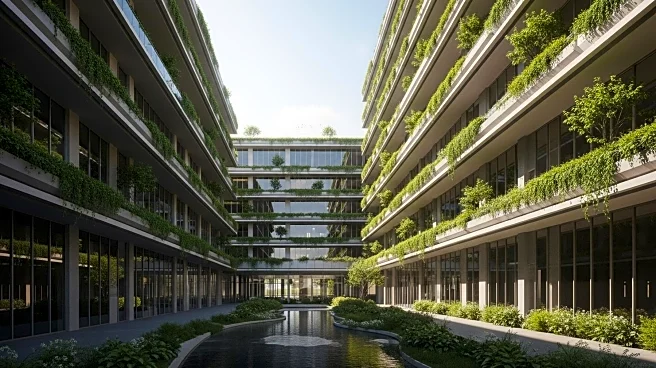What's Happening?
Accor has announced the winners of the 2025 Accor Design Awards at the Maison&Objet fair in Paris. The competition focused on Novotel, Accor's founding brand, and its partnership with WWF France to protect oceans. The winning project, 'Polé, Polé,' created by Coline Robilliart and Corentin Rolland, was inspired by Tanzania's Morogoro region and utilized sustainable materials like ocean waste. The awards aim to discover new talents and ideas in architecture and design, encouraging students to reimagine hospitality with sustainability and innovation. The competition attracted over 100 student teams from 20 schools across 11 countries, showcasing solutions like using invasive seaweed for construction and carbon-tracking apps.
Why It's Important?
The Accor Design Awards highlight the growing importance of sustainable practices in the hospitality industry. By focusing on ocean preservation and reducing carbon footprints, the awards align with global efforts to combat environmental challenges. The winning projects demonstrate how innovative design can transform hospitality, offering practical solutions to reduce environmental impact while enhancing guest experiences. This initiative supports Accor's mission to drive positive action through responsible tourism and environmental sustainability, setting a precedent for other companies in the industry to follow.
What's Next?
Accor's partnership with WWF France will continue to guide its hotels in implementing sustainable practices. The winning projects may influence future hotel designs, encouraging the use of sustainable materials and technologies. As the hospitality industry faces increasing pressure to adopt eco-friendly practices, Accor's commitment to sustainability could inspire other companies to prioritize environmental responsibility. The awards also provide a platform for emerging designers to contribute to the industry's evolution, potentially leading to more innovative solutions in the future.
Beyond the Headlines
The focus on ocean preservation reflects broader environmental concerns, emphasizing the need for industries to address their impact on natural resources. The use of ocean waste in design not only raises awareness but also offers a creative approach to recycling and waste management. This initiative could lead to long-term shifts in how the hospitality sector integrates sustainability into its operations, influencing consumer expectations and industry standards.











